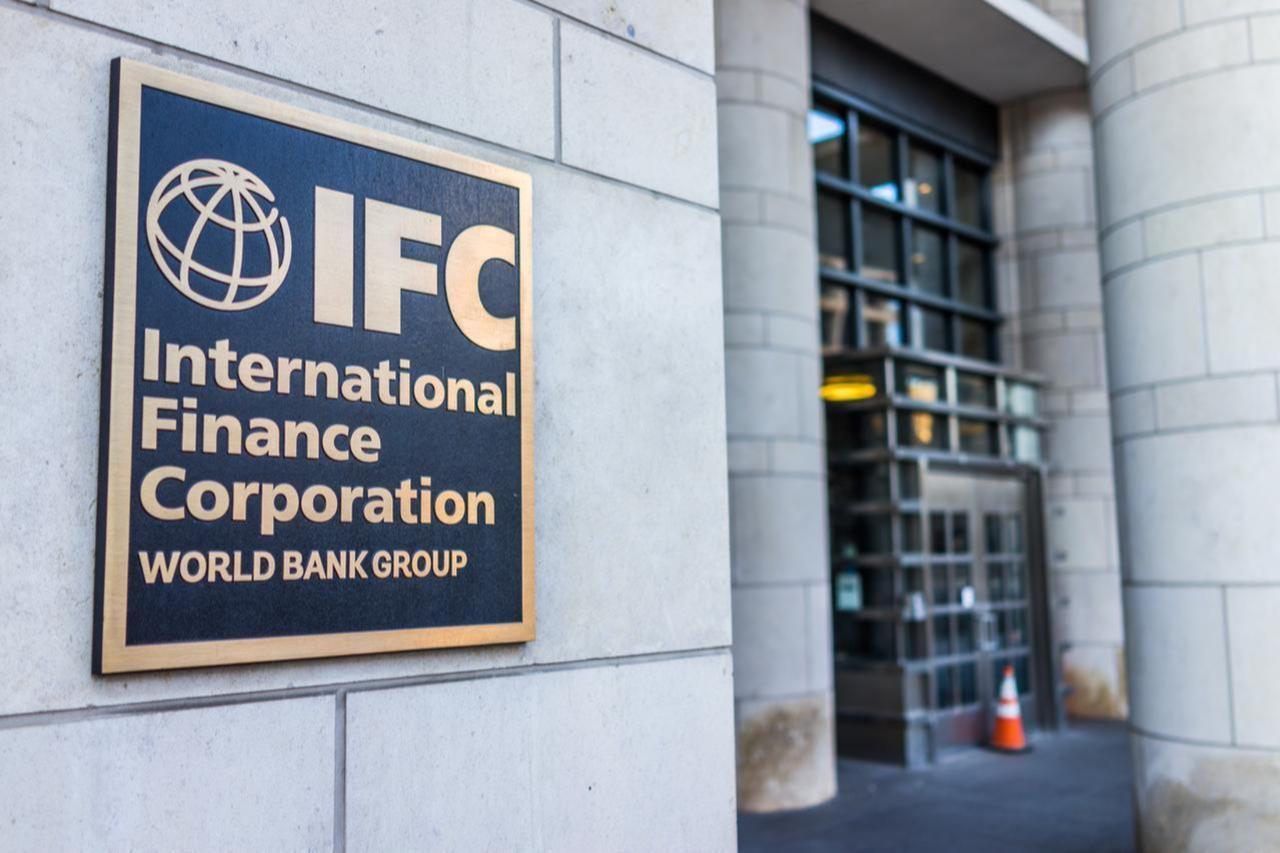
The International Finance Corporation has invested approximately $23.5 billion in Türkiye over the past decade, positioning the country as a priority market for private sector development, a senior IFC official said.
Riccardo Puliti, IFC's Regional Vice President for the Middle East and Central Asia, told the Anadolu Agency that the World Bank Group member has supported Türkiye's private sector for more than half a century. The institution recently ramped up commitments, recording its highest investment levels in the past two fiscal years.
"Türkiye is a priority country for IFC," Puliti said. "We have been supporting the development of the private sector in Türkiye for more than half a century."
Türkiye's dynamic private sector, developing workforce and ability to adapt to changing technologies and global trends have made it stand out in the region, according to Puliti. He emphasized Turkish companies' resilience and agility in navigating challenges and seizing opportunities in a rapidly changing world.
The IFC recently invested in Türkiye's first digital bond issuance by Is Bankasi, which provided financing to thousands of small businesses in earthquake-affected regions. Puliti described the move as "a turning point for innovation in digital finance in emerging markets."
The institution also invested in QNB's issuance of Türkiye's first blue bond to promote climate adaptation and sustainable water management.
"We are proud to be part of this journey," Puliti said of Türkiye's emergence as a leader in innovative finance.
Recent efforts to strengthen macroeconomic stability, particularly steps to reduce inflation, have created a more favorable environment for private investment, Puliti said.
"Macroeconomic stability provides confidence for the private sector to make long-term plans and investments," he said, adding that it encourages development of deep and liquid capital markets necessary to channel savings into productive investments.
According to a World Bank Group study, reducing exchange rate volatility—an indicator of macroeconomic stability—can increase foreign direct investment inflows and economic growth.
The improved environment has allowed the entire World Bank Group to expand its presence. The International Bank for Reconstruction and Development has doubled its investment commitments in Türkiye over the past three years, contributing to infrastructure and legal frameworks through public sector partnerships. The Multilateral Investment Guarantee Agency has attracted foreign capital to strategic sectors by de-risking investments.

Despite recent improvements, unemployment remains a significant issue in Türkiye, particularly for youth and women. As of September 2025, the nationwide unemployment rate stood at approximately 8.5 percent, with youth unemployment at around 16 percent.
"In the next 10 years, 1.2 billion young people will join the global workforce," Puliti said. "Therefore, creating enough quality jobs to meet rising expectations and support inclusive growth is becoming a major issue."
The World Bank Group's recent "Europe and Central Asia Economic Update: Employment and Prosperity" study highlighted the urgency of job creation in Türkiye, where the working-age population is expected to grow.
Tradeable services and logistics, development of manufacturing linked to global value chains, renewable energy and digital sectors present opportunities to increase employment, according to Puliti. A 2023 study by the United Nations Development Programme and International Labour Organization found that investments in energy efficiency and renewable energy could create more than 300,000 new jobs in Türkiye by 2030.
The IFC identified making financing accessible to micro, small and medium-sized enterprises—which account for approximately 70 percent of total employment—as a first step in job creation. Since 2019, the institution's SME programs through the banking sector have supported more than 100,000 jobs.
Beyond SMEs, the IFC has invested in large-scale employment sectors. The expansion of Antalya Airport is projected to support around 93,000 direct and indirect jobs in tourism and logistics.

Building Türkiye's resilience against natural disasters remains an urgent priority, Puliti said. Türkiye recorded 1,257 extreme weather events in 2024—the second-highest number in the past 64 years—and 2024 became the hottest year in the last 50 years.
More than 470,000 private businesses operate in regions affected by the 2023 earthquakes, with 99 percent classified as SMEs.
"These overlapping challenges and trends make the need for infrastructure and businesses that can withstand future shocks even more urgent," Puliti said. "IFC is mobilizing private capital for Türkiye's recovery from earthquakes and long-term resilience."
IFC investments include financing for SMEs in earthquake-affected provinces and strengthening resilient manufacturing and logistics infrastructure. The institution supports projects incorporating climate measures to adapt to temperature rises and water stress, such as the Antalya Airport expansion.
Turkish authorities have made clear that expanding renewable energy and increasing efficiency is both an environmental and economic imperative, Puliti said.
"Türkiye can reduce its dependence on expensive energy imports, strengthen energy security and create resources for growth by increasing renewable energy investments," he said.
The transition supports Türkiye's global competitiveness and helps exporters comply with new carbon regulations like the European Union's Carbon Border Adjustment Mechanism, particularly important since Europe is Türkiye's largest market.
The Türkiye Industrial Decarbonization Investment Platform, established through joint efforts of the Ministry of Industry and Technology, IBRD, IFC and EBRD, targets approximately $5 billion in investment for low-carbon manufacturing.
IFC's vision for Türkiye rests on three pillars, Puliti said. First, the institution aims to create employment in key sectors including value-added manufacturing, agriculture, tourism and healthcare through debt and equity financing and SME financing via local banks.
Second, IFC is committed to building strong and resilient infrastructure in energy, transportation, water and municipal services to improve living conditions and enhance business competitiveness.
Finally, the institution aims to improve access to finance, supporting business growth and thereby driving economic development and job creation across the country.